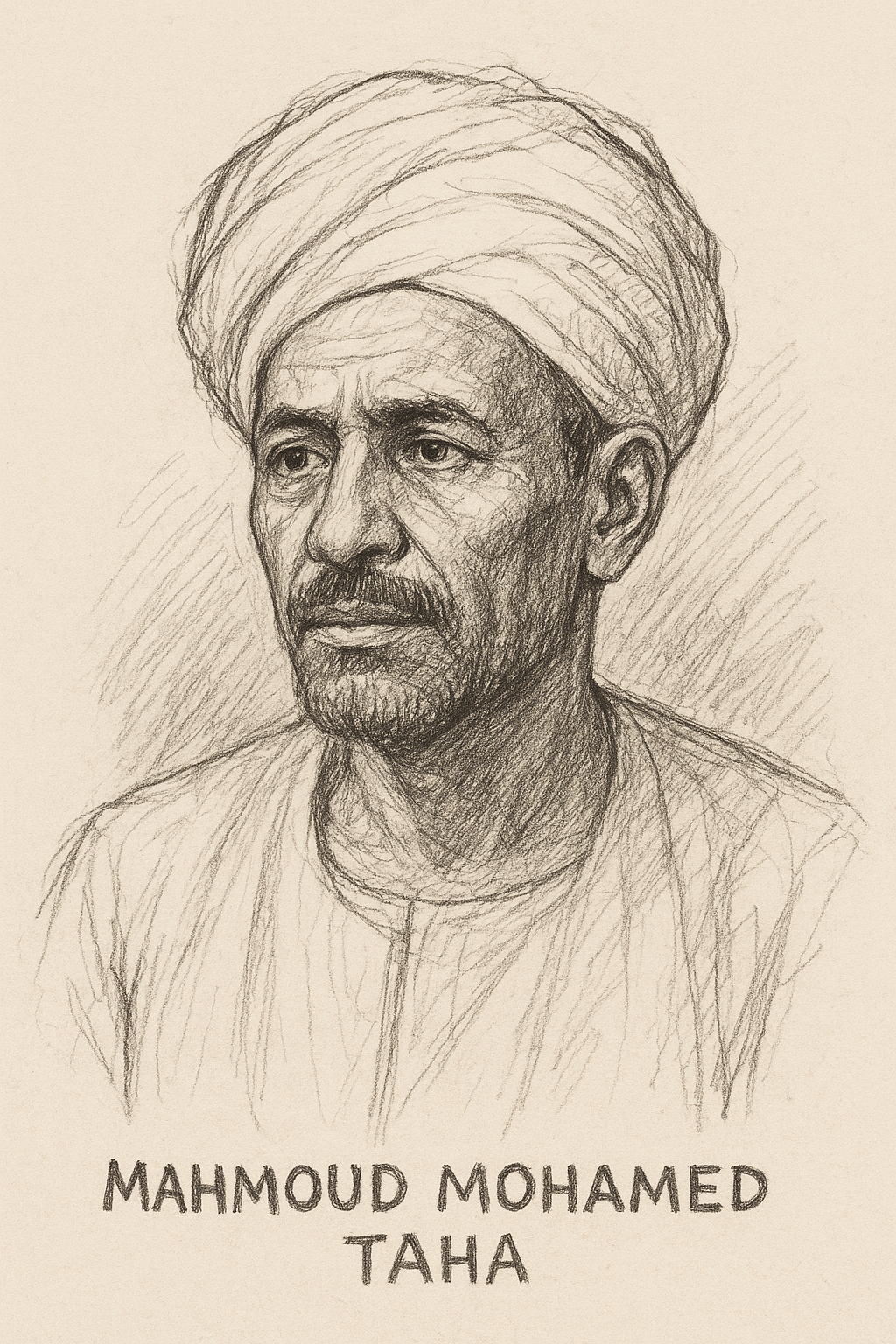A Different Kind of Political Islam: The Ideas of The Sudanese Scholar Mahmoud Mohamed Taha
DOI:
https://doi.org/10.53088/jih.v5i2.2191Keywords:
the second message of islam, the republican brotherhood, sudan, modernism, shari’aAbstract
Ustadh Mahmoud Mohamed Taha is one of the least known but most interesting figures in Sudanese history. The movement he led, the Republican Brotherhood, played a significant role in the debates within Sudanese society during the 1950s-1980s. This study presents the life and thought of this figure, analyzing his main work: The Second Message of Islam. This volume forms the foundation of his entire Islamist ideology, a progressive, pacifist, and tolerant Islamism very different from that of the Muslim Brotherhood in Egypt. The essential characteristic of his conception is linked to the distinction between the Islamic message revealed in Mecca and that in Medina — more precisely, between the Meccan and Medinan surahs. He believed that the core teachings of the Qur’an with universal and timeless applicability are the Meccan ones, whereas the laws from Medina are temporary. These unique interpretations by Taha brought him into direct conflict with the Sudanese authorities, who accused him of apostasy — a conflict that ultimately culminated in his execution. His movement and ideas, unusual for traditional Islam, remain a relevant example of an attempt to modernize Islam and perhaps could have contributed to preserving Sudan's unity.
REFERENCES
Adrahtas, Vassilios (2020), "From Tradition to Modernity and Vice Versa: The Progressive Islam of Mahmoud Muhammad Taha", Journal for the Academic Study of Religion, vol. 33, no. 1, pp.24–44.
An-Na'im, Abdullahi Ahmed, (1989), Constitutionalism and Islamization in the Sudan, in “Africa Today”, nr.3-4, pp.11-18.
An-Na'im, Abdullahi Ahmed (1988), Mahmud Muhammad Taha and the crisis in Islamic law reform: implications for interreligious relations, in “Journal of Ecumenical Studies”, nr.1, pp.1-21.
Besancon, Marie, (2017), Islam in from the Cold: A Muslim Brother's Reflections on the Past, Present, and Future of the Islamic Movement in the Sudan, in "The Struggle for Security in Africa", nr.4, pp.112-135.
El-Tigani Mahmoud, Mahgoub (2003), State and Religion in the Sudan: A Study in the Role of the Religious Factor in the Political Development of Sudan (1898–1985), Lewiston: Edwin Mellen Press.
El-Tigani Mahmoud, Mahgoub (2023), Islam and Secularism in Muslim Thought: Critical Perspectives, Lewiston: Edwin Mellen Press.
Fluehr‑Lobban, Carolyn (1990), Islamization in Sudan: A Critical Assessment, “Middle East Journal”, vol. 44, nr. 4, pp.615–634.
Howard, Steven, (1988), Mahmoud Mohammed Taha: A Remarkable Teacher in Sudan, in “Northeast African Studies”, nr.1, pp.83-93.
Howard, Steven, (2016), Modern Muslims. A sudan memoir, Athens: Ohio University Press.
Magnarella, Paul J. (1982), „The Republican Brothers: A Reformist Movement in the Sudan”, Muslim World, vol. 72, pp. 14–21.
Mahmoud, Mohamed A. (2006), Quest for Divinity: A Critical Examination of the Thought of Mahmud Muhammad Taha, Syracuse: Syracuse University Press.
O’Sullivan, Declan (2001), "The Death Sentence for Mahmoud Muhammad Taha: Misuse of the Sudanese Legal System and Islamic Shari’a Law?", The International Journal of Human Rights, vol. 5, no. 4, pp. 77–85.
Packer, George, (2006), The Moderate Martyr. A radically peaceful vision of Islam, in The New Yorker Magazine, September 11, 2006, pp.50-63.
Taha, Mahmoud Mohamed, (1996), The Second Message of Islam, translated by Abdullahi Ahmed An-Na’im, Syracuse: Syracuse University Press.
Voll, John O. (2015), "Mahmoud Muhammad Taha", in Oxford Bibliographies in Islamic Studies, ed. by Andrew Rippin, New York: Oxford University Press.
Warburg, Gabriel R. ,(1990), The Sharia in Sudan: Implementation and Repercussions, 1983-1989, in “Middle East Journal” , nr.4, pp.624-637.
- (1990), The Holy Bible. New King James Version, Nashville, Thomas Nelson.
- (2003), The Noble Qur’an: English Translation of the meanings and commentary, translated by Dr. Muhammad Taqi-ud-Din Al-Hilali and Dr. Muhammad Muhsin Khan, Madinah, King Fahd Complex Fort The Printing of Qur’an.

Downloads
Published
How to Cite
Issue
Section
License
Copyright (c) 2025 Cristi Rusin

This work is licensed under a Creative Commons Attribution-ShareAlike 4.0 International License.
Authors who publish with this journal agree to the following terms:
The author(s) retain copyright and grant the journal the right of first publication with the work simultaneously licensed under a CC BY-SA 4.0 license that allows others to remix, adapt, and build upon the work even for commercial purposes, as long as they credit the author(s) and license their new creations under the identical terms.
License details: https://creativecommons.org/licenses/by-sa/4.0/

